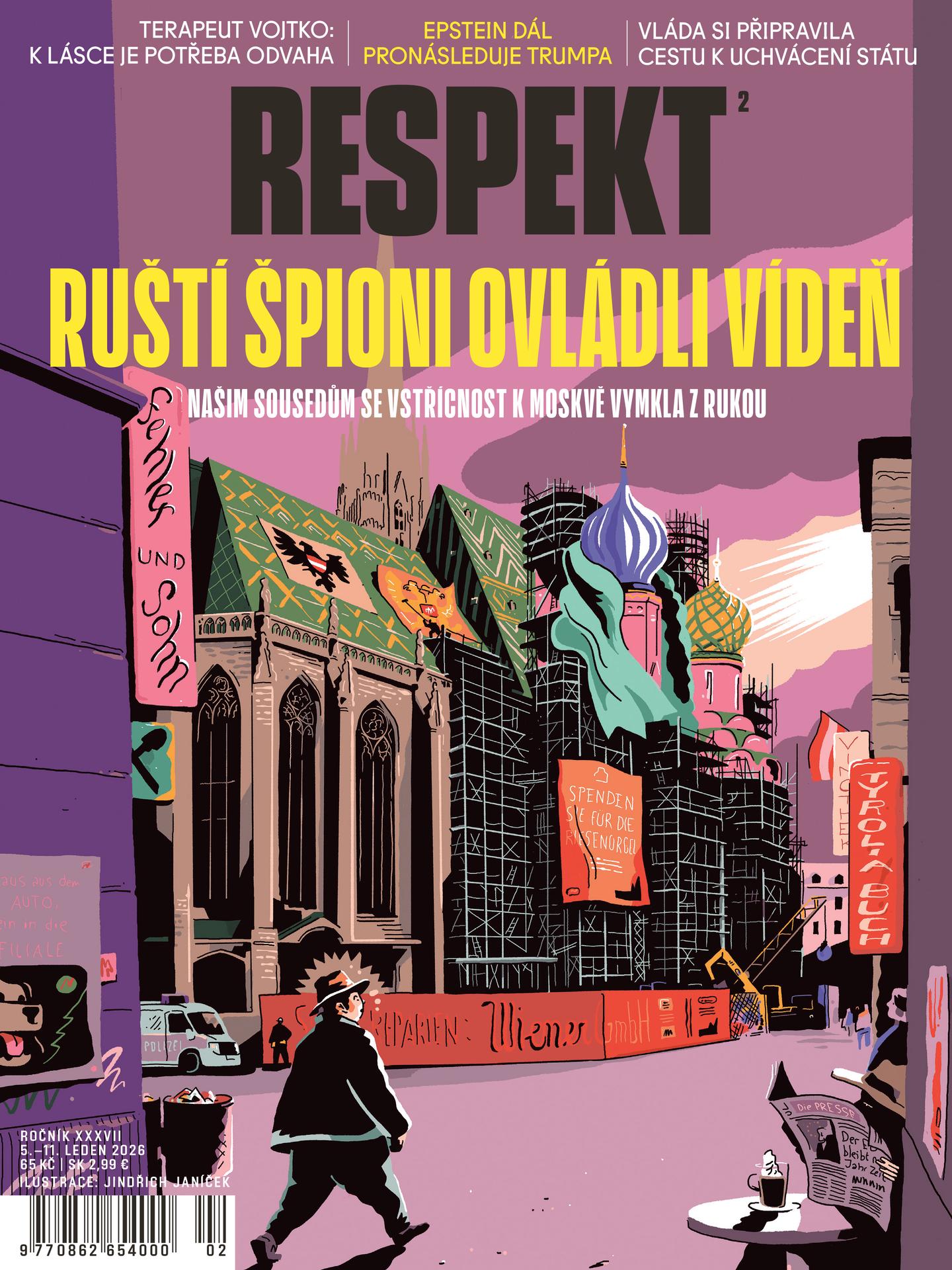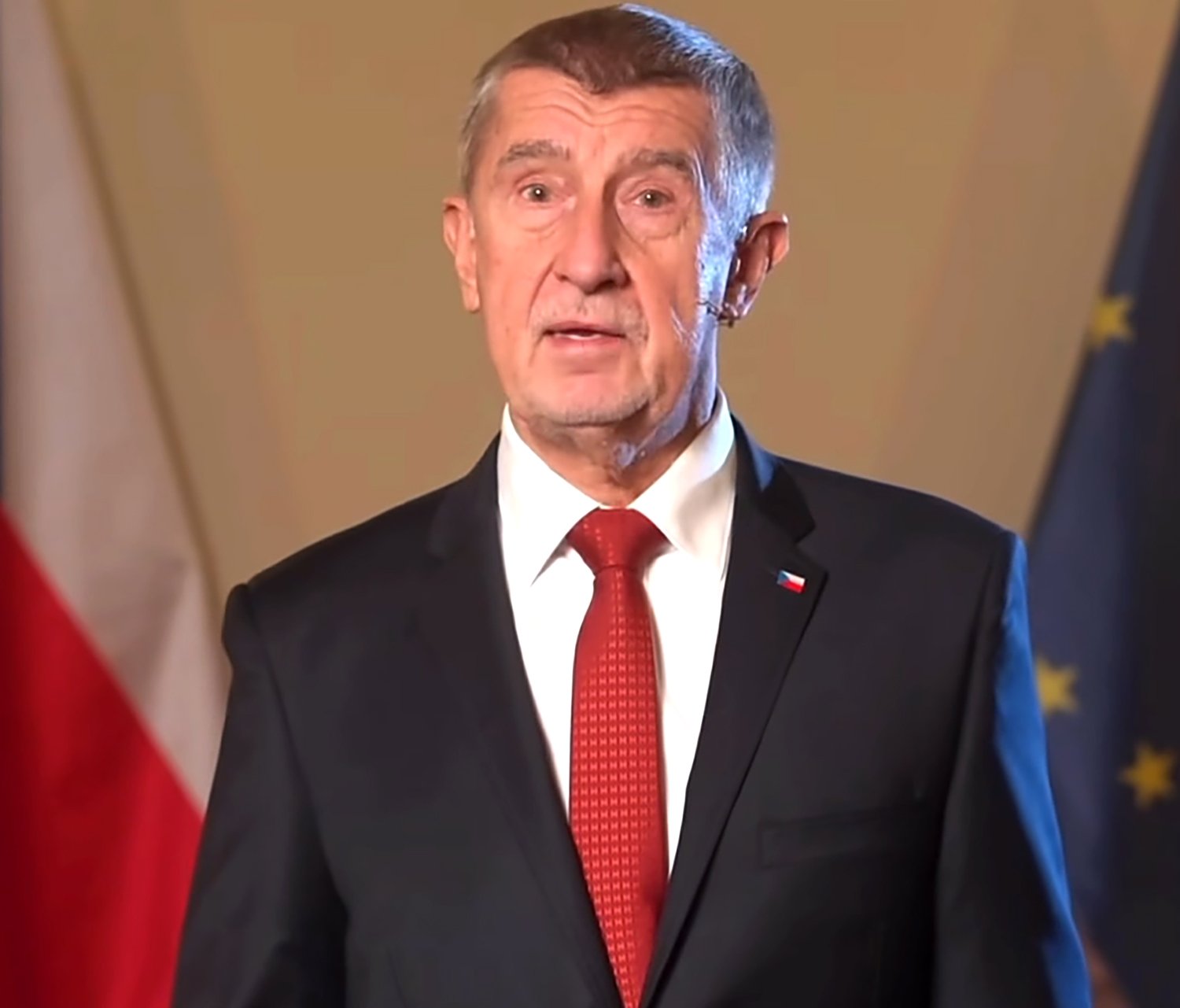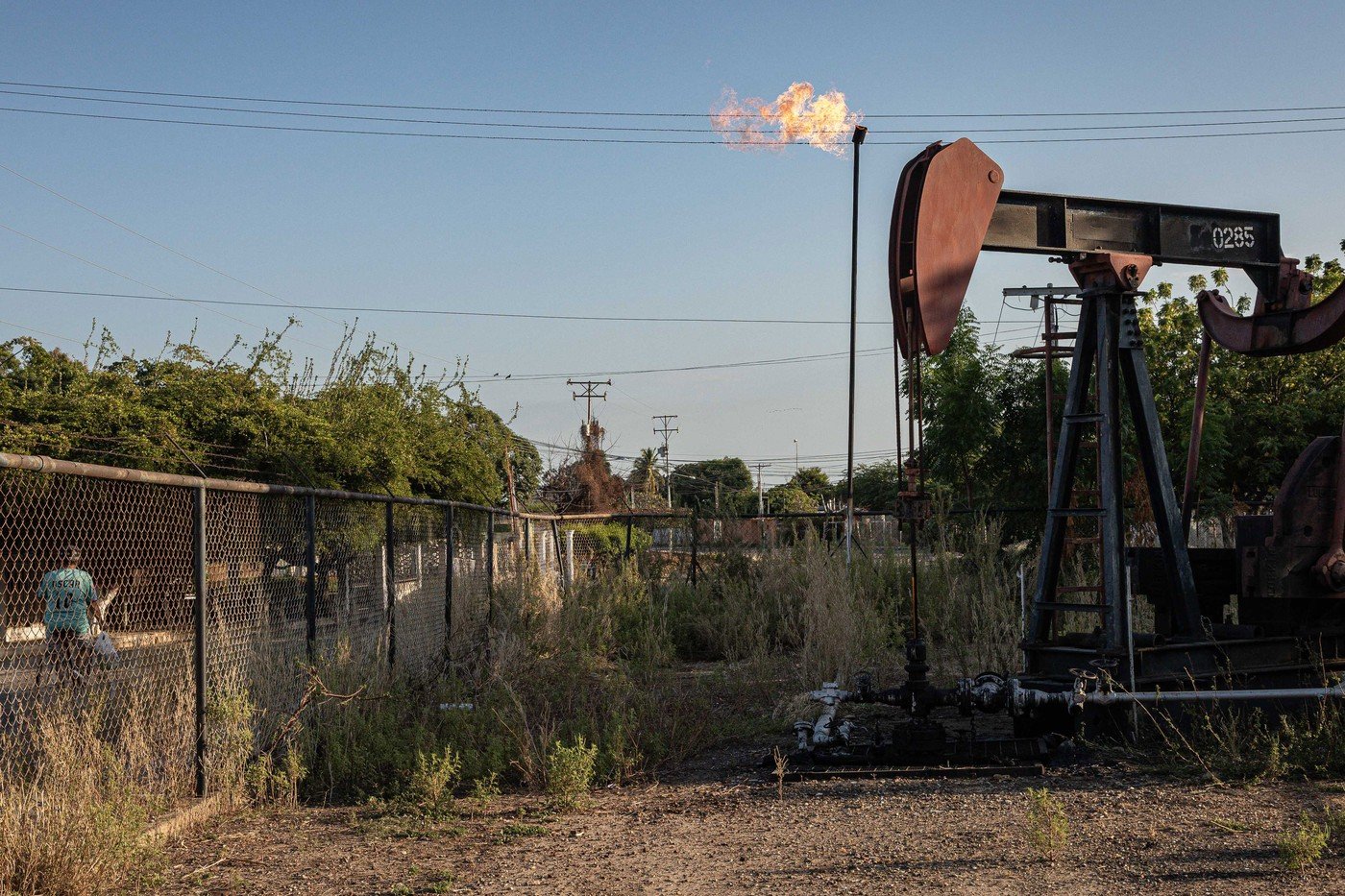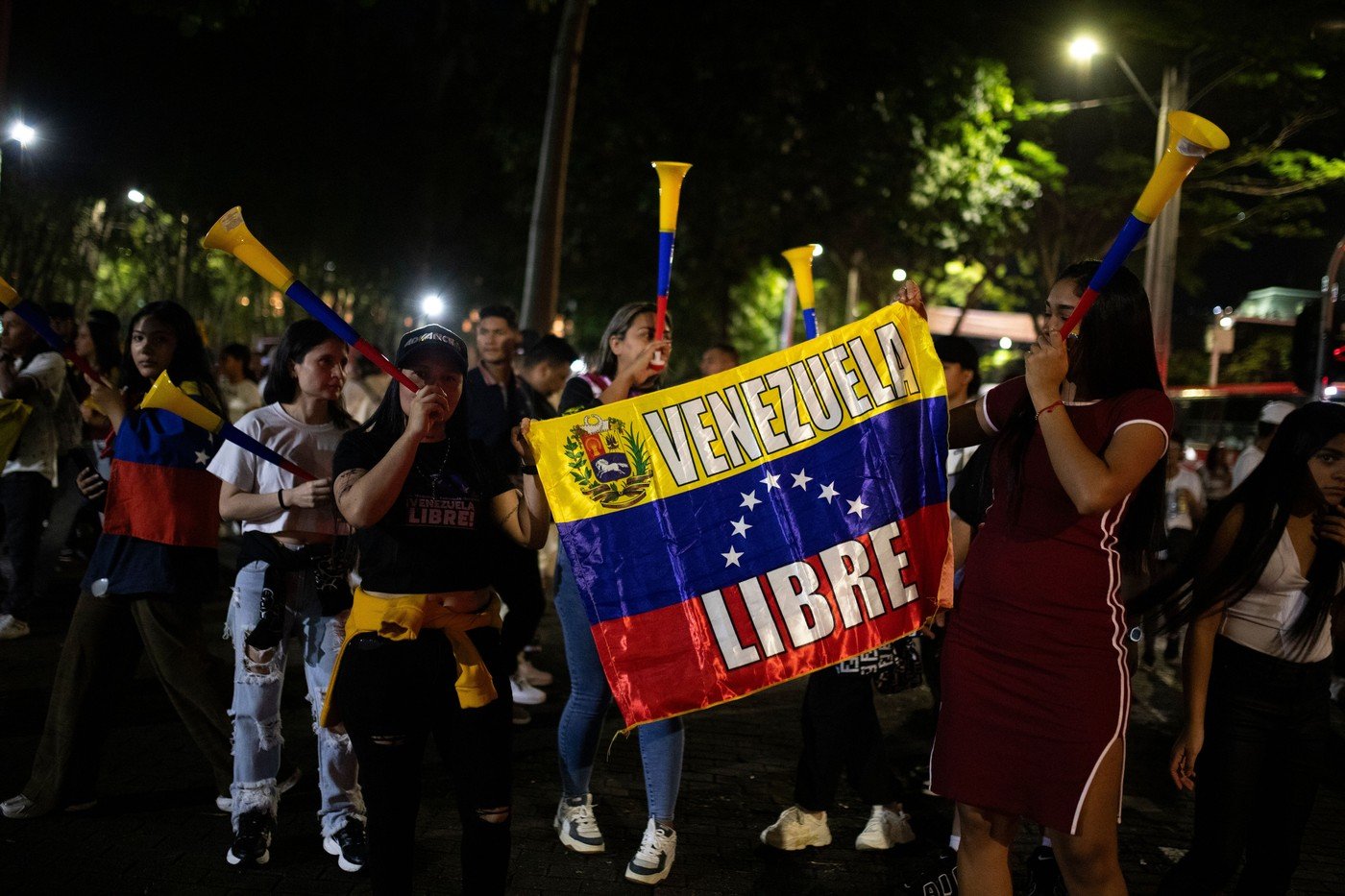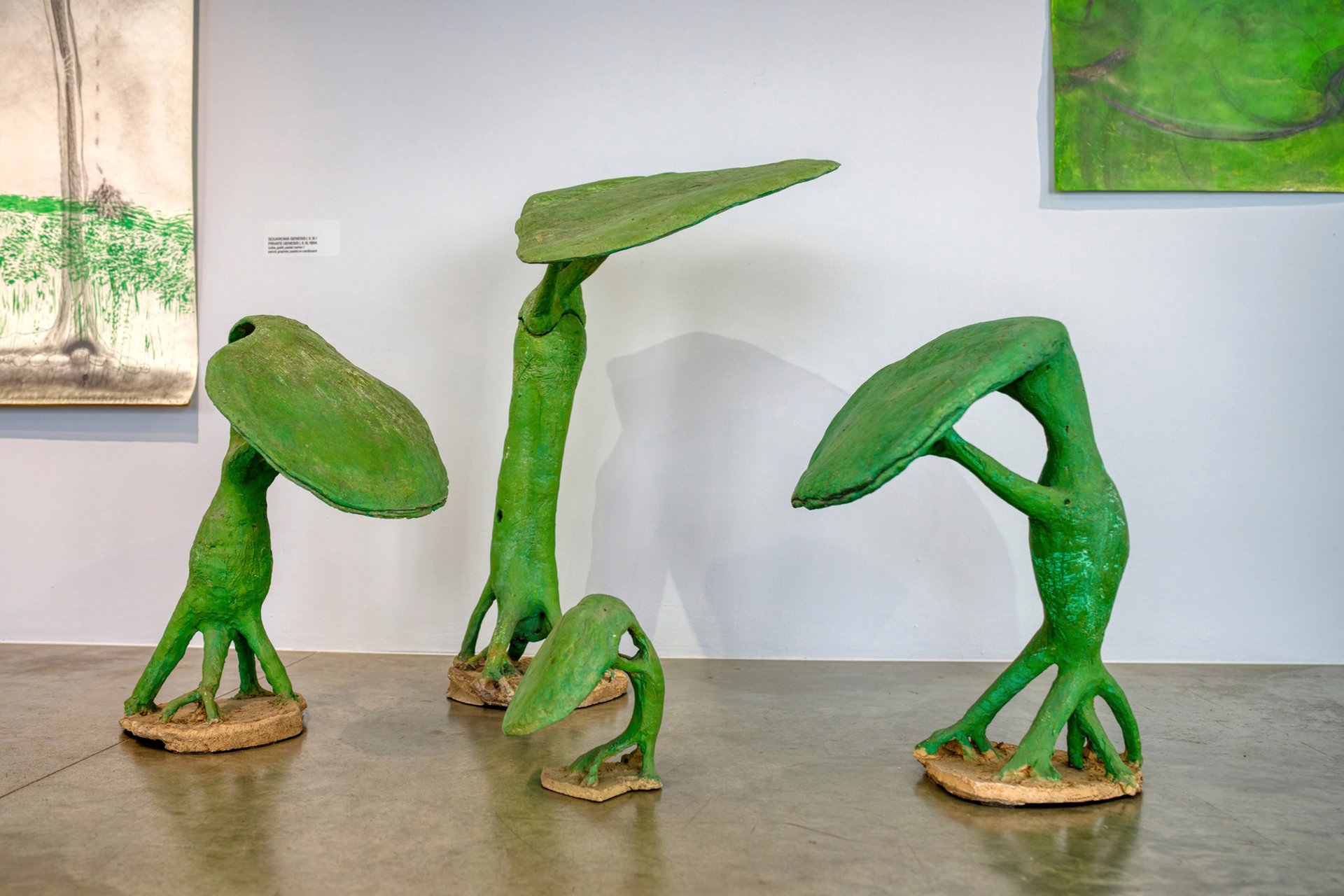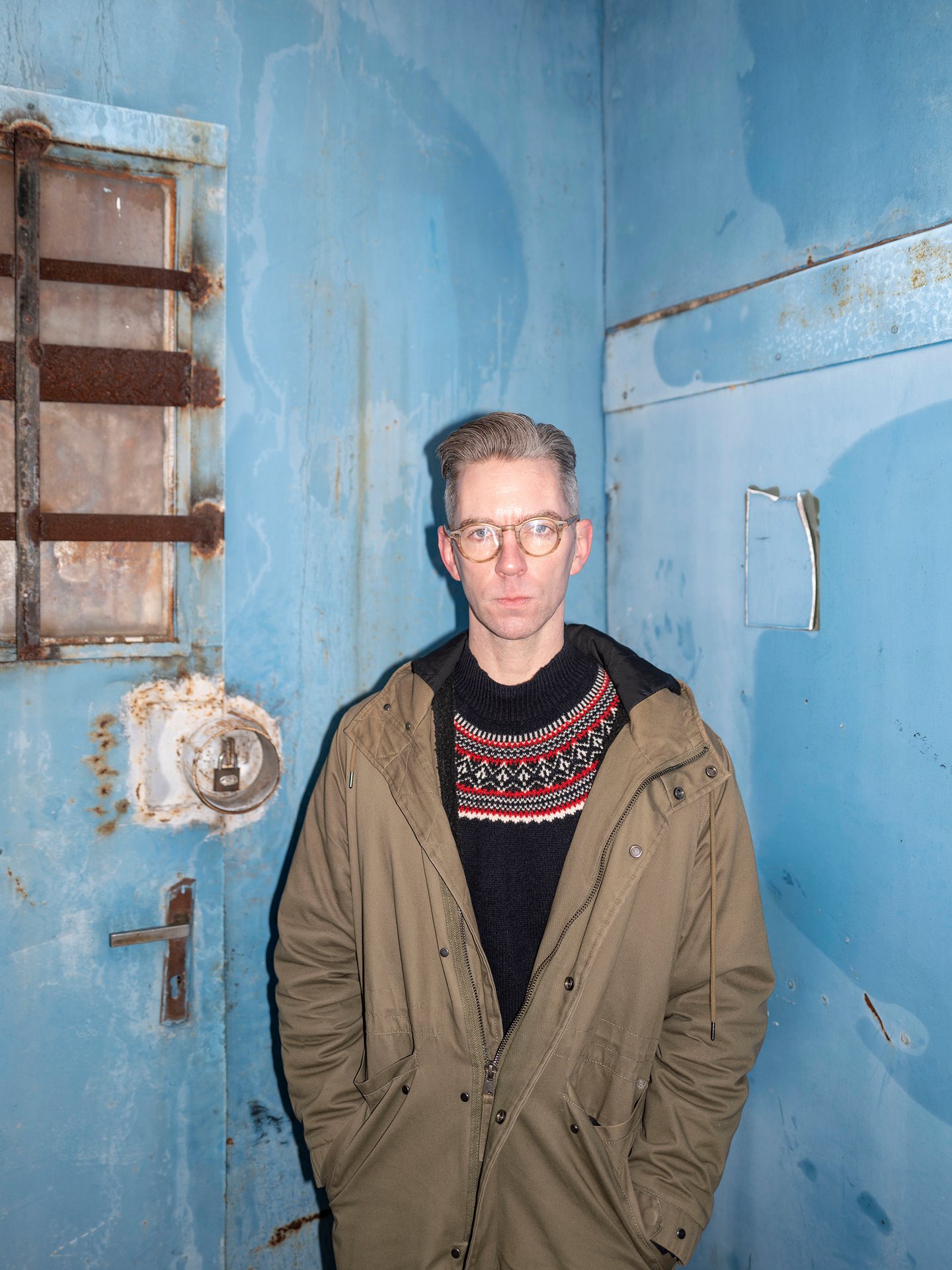Slovakia's Roma Knocking at the Door
Citizens, don't be afraid! I'll do all I can to protect you from an invasion of Slovak Roma, Interior Minister [Stanislav] Gross effectively promised several weeks ago when the cabinet discussed a report by his ministry.

Citizens, don't be afraid! I'll do all I can to protect you from an invasion of Slovak Roma, Interior Minister [Stanislav] Gross effectively promised several weeks ago when the cabinet discussed a report by his ministry called „An Analysis of Current Migration and Settlement of Members From Roma Communities From Slovakia.“ The analysis, though, contains not a single line that indicates that, of late, more Roma from the east have been coming to the Czech Republic than ever before.
Still, it is worth paying attention to the Slovak Roma. Most Roma [in the Czech Republic] came from Slovakia and a majority of Slovak Roma have relatives in this country. The communities on either side of the border are like conjoined twins. Moreover, the Slovak Roma are already down-and-out, while ours are only on the way down. Understanding the situation in Slovakia could show politicians where coexistence with a minority can lead.
Hundreds of thousands living in shacks

It is the end of November and a few degrees above zero. From a twisted pipe jutting out of the ground water flows straight out onto a muddy road. A boy aged about six sticks a canister into the gush of water. His large jersey, the only garment he has on, is completely wet. His bare feet tread water in the puddle. We are at the outskirts of Rudnany, one of 27 Romani settlements in the Spisska Nova Ves region [in eastern Slovakia], at the only source of water for some 500 locals. The unusual visit soon draws the attention of a clutch of other kids. Despite the cold, some are entirely naked. „Uncle, take a picture of me,“ they all shout.
The Rudnany settlement was established at the end of the 1980s. Miners were already stopping extracting ore, and were moving out of the house that stood alone beyond the village. It was already dangerous to stay there: the land below the house had literally been undermined. In no time at all, several Romani families from a settlement at the other end of Rudnany moved into the vacant house and dozens of shacks grew up around it. Anything that one can find nearby is being used as construction material.
„At the moment, they're taking bricks, windows and doors from the ramshackle House of Culture down there in the village. Thanks to that, several dozen new shanties have gone up,“ says Karel Novak, who helps the Roma in the settlement.
A tall mustachioed man slowly approaches and boasts that right now he's helping his brother build a new „house.“ „He's got seven children and they can't any longer all fit into one room,“ he says and, with a couple of strides, crosses his brother's current dwelling. It is two times three meters big, with a kitchen unit and one sofa for everyone. He enters the other door and finds himself between walls made from sleepers taken from an abandoned railway siding near the mine head. „A little bit more glass fiber, some asbestos boards, and concrete for the floor and it'll all be done,“ he says.
„Oh dear, Tereza's coming,“ says Karel Novak, casting a look of concern at a woman in her fifties who is approaching. „She always yells horribly and she keeps ticking me off,“ he explains. This time though, the meeting passes off smoothly. „I have ten kids. Some live in the village among the ***gadjos*** [an expression for white people in Romani],“ the woman boasts to the visitors. The new houses of her sons are among the most finest in the village.
„The luxury there, it's like a film,“ says Karel Novak. They made money by lending money, or usury, as the Romani community here calls it. Nearly everyone in the settlement owes them money. In practice that means that they take people's entire social-security allowances and then lend them perhaps a quarter of the sum to live off. „Each month, they can collect about a million [Slovak koruna; over $30,000] and lend out 250,000 [$7,500],“ says Novak, trying to estimate the income of three of Tereza's sons.
Then he points to the moneylenders' mother's log cabin on the hillside. „People say that recently four masked robbers took 800,000 koruna [over $24,000] from there. Her sons had hidden the money there as they were being investigated by the police.“
Winning the mayor over
In the meantime, an old van has stopped at the spring and several men start have begun to wash the vehicle. Soon, the pool is covered with foam.
„You're not allowed to make a mess or use detergent here. Do you know that?“ a woman from a nearby shed shouts at them.
„Yeah, I do,“ the van's owner responds.
„So, don't.“ The woman is angry. But the van's owner pays no more attention to her and after a while she waves her hand in resignation. Mrs. Zdena is one of the few people in the settlement who has a job. She has been working as a medical assistant here for over a year. Her duties start in the morning in the doctor's waiting room, where she instructs mothers on keeping things tidy and explains to them what the doctor is actually telling them. After work, she can offer first aid to people in the settlement and she can call an ambulance if needed.
„That was my idea,“ says Karel Novak, whose non-profit organization employs the 40-year-old. He chose Zdena because she is reliable, enjoys respect, and because she has enough time–her two children are already grown up.
„The ambulance service didn't want to come here. If often happened that people called them out for no reason. But when Zdena calls they can be sure that it's absolutely necessary,“ Novak explains.
Zdena is proud of her job. She buys the medication for her limited medical kit from her own money and then asks for the cash back from people's benefits. She wants them to learn to get their own medication in time. Sometimes she has to muster up the courage to deal with more serious injuries. Recently she helped a woman whom her husband had beaten with a log. The knots on the log left her with lacerations on her body. „She refused to see a doctor. An investigation would have been launched and her husband would have found himself in the cooler,“ Novak explains.
Getting a medical assistant is not the only success that Novak has chalked up in the two years that he has been working in the settlement. Another is a new kindergarten that now stands on top of the hill, alongside a new apartment block. (The government overnight released money for the block after the shacks of the 30 families who now live there began to slip down the slope; the occupants' satisfaction is plain to see–white net curtains shimmer in the windows and neatly dressed children play outside.) The kindergarten was financed by American airmen from an air base in Germany. Children are due to move here early next year from quarters in the apartment block that they had been using in the meantime.
It was Rudnany's mayor who discovered there was a chance of getting money for it. The mayor's initiative rates as a major success; initially, he would begin swearing at the merest mention of Roma. However, Karel Novak managed to persuade him that helping would pay off. It took only a year of systematic work and not a single Romani kid has had to start attending a remedial school. Moreover, children from these poor settlements do not skip a single day of school; it is common for quarter or even a half of their wealthier peers in towns to skip lessons. „They have toys there and their own lockers,“ Novak explains. „At home, they have nothing of the kind.“
Another of Novak's successes are six unsightly benches placed on a concrete yard outside the apartment block. It's not so much the benches themselves that are the success, but that it was the residents of the block who succeeded in submitting the project and getting money from the municipality. „It's a first small step. Roma from Rudnany have this year won money for seven little projects worth 30,000 koruna [$900],“ says Novak, preening.
Like Bata gym shoes
Novak, who was born into a neighborhood of villas in Prague, came to Slovakia five years ago to help as a volunteer for Clovek v tisni [a Czech NGO called People in Need] in another settlement. There he found a partner for himself, Albina, a Romani widow with seven kids. They moved into a house together in Rudnany.
Albina now knows what it is like to turn into a respected citizen overnight. When she first went to see the doctor with their little son, she experienced the same as other Roma–a waiting room separated from one for whites. „Next time the doctor already knew who I was and he told me to go the other room,“ Albina recalls. „I didn't go there; what would other Gypsies think of me then?“
She adds hastily, though, that separate waiting rooms are more of a practical arrangement than a sign of racism. „People from the settlement have lice, fleas, and they are dirty. Sometimes even I take Alfred [her son] aside,“ she says.
„When the situation changes and people look normal we can push the idea that there's no need to keep them separate,“ says Novak. „All of us, including the mayor, believe that we can find money for new flats for everyone in the settlement this year.“
Although separated Slovak waiting rooms might seem incredible and scandalous to us, it is likely that they truly will vanish when there are new apartments.
Yet fighting Czech prejudice is more complicated. Take the example of one solitary Romani family that moved from Slovakia to the Jesenik region [in North Moravia, close to the Polish border] and were rejected with hostility. Fearing revenge, these eight adults and 11 children had fled a village, Chrast, in the Spisska Nova Ves region to a brother living in Ondrejovice. Twelve years ago three men in the family killed in a fight a man who married into their settlement. They served the sentence but the dead man's relatives did not forgive them. From time to time they threatened to kill someone from the culprits' family. When a son of the dead man grew up, attacks replaced the threats. When 20 men demolished all the equipment in their house this spring, the family waited no longer and fled to their brother in the Czech Republic. There a Romani activist, Dusan Badi, took them in. He let them live in his empty house, helped them shed their fear, and filed a criminal complaint in Slovakia. The police opened a case, but their assailants remain free. The family cannot, then, even think about returning.
„We are not a dirty family, we send our kids to school, and we are careful. We ask nothing of anyone; all we want is peace,“ says an old woman in the kitchen in her new Czech home. The family travels to Slovakia to pick up their benefit slips and the men sometimes find temporary work. They ask nothing from the state and from the municipality either. They have decorated the house, hung curtains, and bought coal.
Yet there was still a groundswell of hatred towards them. „Two of their neighbors came and asked us to take action,“ says Lumir Vrkoslav, deputy mayor of Zlate Hory.
Local politicians decided to do everything they could to make the family return from whence they came. Vrkoslav shrugs off over their fear of returning [to Slovakia], saying „they're definitely making it all up.“ The municipality called the foreign police to run a check on the family. „Unfortunately, they told us that their papers were in order and that they can spend 10 years here visiting if they want to,“ says Vrkoslav.
He is now banking on health inspectors intervening. „We want them to declare the house uninhabitable,“ Vrkoslav continues. The house takes water from the same well as several others in the neighborhood. It has a flushing toilet indoors, and the house is kept spotlessly clean. Despite that the deputy mayor contends that „there is no water and they have to have taken it from the brook. Nor is there a toilet and they defecate somewhere in the cellar. There's a horrible stench there. There is a threat of an epidemic–as in Karvina [a North Moravian city with a large Roma population where there was an outbreak of dysentery among the Romani community in September 2003].“
When confronted and told that the reality is somewhat different, Vrkoslav responses: " I don't know. That's what we were told it was like. Anyway, it's not normal that they are settling here like that. They will reproduce in the way that Bata produces gym shoes. They will have children and perhaps others will arrive from Slovakia."
The promised land
Gross's populism is already bearing its sour fruit. „This family is the only one in the Jesenik region but on TV they've talked about tens of thousands of Romani coming here from Slovakia. Allegedly it has became a big problem,“ says Lumir Vrkoslav.
However, the report on Romani migration from Slovakia and settlement in the Czech Republic says nothing about a growing number of immigrants. „There has always been and will be some migration. But it's been steady for years. There is no extraordinary wave of Slovak Roma migrants surging into this country,“ says Roman Kristof, a coordinator of a survey for the International Office for Migration (IOM).
What has changed in recent years is the number of asylum applicants. A thousand applicants from Slovakia means our eastern neighbor is the third largest source of asylum applicants. However, all that means is that these people spend a year in an asylum camp rather than with their relatives. The absolute numbers do not change. None has ever won asylum and none is likely to in the future. The growing number of asylum applicants from Slovakia was among the reasons why the interior ministry commissioned the report.
The part of the report that relates to migrating families, their situation, and their motives was drafted by field workers for People in Need. They contacted over 50 randomly selected individuals or families. Among the most frequently mentioned reasons for migration were: to join a family, to follow a partner, to return to the Czech Republic, the loss of a place to live, debts that led to them losing their housing, the search for a job, and the prospect of a better life. Sometimes, and that is the case of the Roma in Ondrejovice, the migration is not an attempt to solve problems and set up permanently in the Czech Republic, but rather an escape with the prospect of one day returning to Slovakia.
At the same time the report points out that the migration goes in both directions, though the inflow of Slovak Roma is greater. A large percentage of Slovak Gypsies view the Czech Republic as a promised land, a place where they can find job, the people are nice and helpful, and where is no discrimination. Working or just staying here for a while is a matter of prestige. According to the report, joining the EU will change one thing: while today Slovak Roma can avail themselves of the hospitality of their Czech relatives with no great problem, they will be more likely to search out family members in England and Ireland or in Finland and Sweden.
White man, choose your own vajda
The report sees a risk in something other than Slovak Roma wanting to move to this country–more specifically, in the dismal condition of the Romani population, no matter whether Czech or Slovak. „The Romani population is more and more distinctly reproducing phenomena that can be described as a culture of poverty,“ the report's authors warn. They argue that persistent poverty and social failure means that people lose the ability to extricate themselves from the situation even when conditions are favorable. Poverty becomes a lifestyle. They give up on education, communicate poorly with the majority society, and accept their social pathology. That is why aid to the layers of society that have been stricken with poverty longest is complicated and often fails.
Jan Cerny, a coordinator of field projects for People in Need, gives an example: „There is nothing easier than to bring a truck full of clothes to a settlement. What happens is this–and we know this from Maticni Street [an area of the town of Usti nad Labem where a wall was built to separate Roma from their white neighbors]–that women stop doing the washing. Two months later we were there again to get rid of unneeded stuff.“
Higher social allowances also do not work. „For these people there is no big difference in having one or two thousand koruna extra [per month, or $38-$75]. They would remain poor,“ says Jan Cerny.
Moreover, usurers would not give them more money anyway. Usury is nothing new in the Romani community. Its strongest members have always lent money as a way of confirming their power. What's new is the appallingly high interest that is scourging debtors. Yet those who lend money are still broadly respected as they are the most capable members of the community and sometimes also its natural leaders.
Another Slovak settlement–Markusovce–is an example.
Markusovce does not leave anything like the depressing impression produced by the settlement in nearby Rudnany. Some of the houses there could well stand in the middle of the village and no one would have to feel ashamed. Many people have water pipes and a sewerage system; others will soon be connected. This is the work of Rudolf Horvath, a born leader but also a usurer. He successfully agreed with the mayor that the municipality would pay for a new utility network, he arranged that people could collect wood from the forests legally, and he plans to pull down the hovels and build decent dwellings with the state's assistance. His civic organization has arranged pre-school teaching in Markusovce. Local men will start making beehives this winter and they hope to earn money by breeding bees.
Rudolf Horvath has other plans too; he is completing his secondary education to prepare himself to stand as a candidate for mayor of Markusovce. Over half of the village's inhabitants are Roma and by the time the local children grow up, the Roma will be in a majority (while in the Czech Republic every 50th person is a Rom, the ratio in Slovakia is almost one to 10).
„I want to pass the school-leaving exam so that I don't fare as badly as they did in Bystrany. Someone who wants to become a mayor must know something,“ says Horvath. The nearby village of Bystrany not only has a Romani mayor, but also a council entirely filled by Roma. They buy spirits from the budget and give it out free to the locals.
They are holding a mirror to us whites. The mayor of Bystrany repeats just what he used to hear from white mayors: „Choose yourself some ***vajda*** [a representative, an authority in a Romani community]. You can't expect me to deal with each of you individually.“
A Gypsy with primary education is not human
The culture of poverty and the related inability to take a chance even if it's knocking on the door prompts part of society to moralize that the poor bring their problems on themselves. From helplessness, it's just a short step to thinking that they deserve strict treatment. That is the kind of thinking that prevailed in recent years.
„The position of Czech Roma has worsened considerably over the past 10 years,“ says Jan Cerny. „Before, most of them used to live in apartment blocks and paid their rent. Then the republic split and troubles with citizenship started. For tens of thousands of Gypsies who lived in the Czech Republic but were born in Slovakia the agreement between the newly independent republics was in character an annihilation.“
The problem was that the agreement did not function reciprocally: while a Czech living in Slovakia could opt for Slovak citizenship, a Slovak living in the Czech Republic could not. And everyone born in Slovakia was considered to be Slovak no matter whether they had lived their entire life in the Czech Republic. Putting together all the papers necessary to apply for citizenship was complicated and required several thousand koruna. According to a study by the Citizenship Consulting Office, the protracted proceedings involved in getting Czech citizenship caused problems for 70 percent of local Roma. This was also a time when mass layoffs began, and the first to go were the Roma.
The result was dreadful–a person without Czech citizenship did not qualify for social support. So they started to borrow money–and it is precisely at this point, in the mid-1990s, that usury began to increase–and they ran up debts of hundreds of thousands of koruna. They stopped paying their rent and, in a few years' time, lost their flats. Municipalities began to push people away from their doorsteps and to create the type of ghettos that they are now trying to deal with in Slovakia.
At the same time, it is much easier to help people living in settlements than in towns. „It's true that there are moneylenders there but when they make a million they spend a million. They don't put the money into organized groups,“ says Cerny. „In North Bohemia you can find groups that have been able to push Kosovar Albanians out of the heroin market. For many people, the only way to achieve individual success is to join the mafia. It's then impossible to offer those people anything lucrative.“
In this respect, we are again in the same boat as our Slovak neighbors. The Czech housing estate Chanov is an example of a rough housing estate just like Lunik IX in Kosice [the largest city in eastern Slovakia]. Lunik IX is the most densely populated place in the whole of Slovakia (5.8 square meters per resident) with unemployment running at 90 percent. Over half the kids there do not go to school.
„I wanted to escape that camp, Lunik IX. Believe me, it's nothing but a camp,“ says a diminutive man in his forties, as he gives his reasons for asking asylum in the Czech Republic. „A Gypsy with just an elementary education is not considered a human. He's written off, at the police, in hospital, in a normal school.“ In comparison, life in a Czech asylum center is, for him, a true paradise. „My 10-year-old daughter attends school here and she wouldn't miss a single day. She's made friends and they visit each other. My wife and I, we've also been on a visit to someone. People talk to us, they see we aren't that bad,“ says Rudolf Hrizko.
Might is right
There is one thing on top of terrible living conditions that made Hrizko leave his home. He faced up to the local moneylending mafia and now he's scared. „I reported them to the police. They arrested them in the morning yet in the evening they were all back home,“ he says. „The children lived through the fear with me when they shouted into my window–Hrizko, come out, why are you hiding.“
His denunciation bore fruits; several people, including a former mayor of Lunik IX, were sent to jail. However, the situation didn't change: the positions they vacated were filled by new moneylenders and the original ones are already out of prison. In contrast to the situation in Markusovce, the local creditors have no mercy. „You get 10,000 [$300] in benefits, you borrow 5,000 and have to pay back 9,000. And again you have to borrow. You're in a circle. If you don't pay for a month or two, they take your things from your apartment. When the debt's bigger, someone in the usurer's family takes your flat,“ says Rudolf Hrizko. He paid for a late repayment with several broken ribs.
He doesn't believe that things can improve any more: „I wrote to the ministers [Pavol] Rusko and [Pal] Csaky. They responded that they're happy to have a Rom like me but, as for help, nothing.“
Hrizko didn't win asylum and he will have to return home in several weeks' time. He could stay–if he finds himself a job and housing. „I know about work but accommodation for the whole family is a problem. I can stay in a hostel but alone,“ he says. „I have two adult sons in Lunik and they told me: Dad, be careful. Here they keep talking about you. I don't know what we'll do.“ Lunik IX is a place were the normal law does not apply. „There, might is right. A powerful man is someone with money and a big and strong family to back him up when something happens.“
A hundred people who have recently moved to Lunik from another part of Kosice where a new supermarket is being built now have personal experience of what „might is right“ means. Anyone who lacked a rental agreement or had a debt was moved into one of the bedsit apartments in Lunik. Local Roma and the caretaker now behave high and mighty. „I pay 5,000 koruna for this one room. The caretaker kicked me out when I smoked. I was supposed to go and smoke outside. Is this a prison cell or what?“ says a young man in a green jacket angrily.
Other people emerge from their rooms and one after another they adding details that make their lives unpleasant: No visits. Four cookers for 10 families. No private cookers, fridges, or washing machines because the fuses are weak. Just one shared toilet. But there is no choice. If they were to find themselves lodgings somewhere else, they would lose their housing benefits.
„The children can't go outside,“ a young woman complains about relations with the Roma who have lived here for a long time. They don't want anyone new in this overcrowded estate. „They call us dirty and beat our children,“ the woman says, pointing to a fresh scab on her son's face that appeared after he was hit with a stone. A security guard therefore stands in front of the bedsits. He also patrols the bus stop every day when the kids leave for school.
The biggest paintball in the world
The authors of the report recommend that the Czech government send part of the money it sets aside for development aid to Slovakia.
„Romani settlements are islands of the Third World,“ explains Roman Kristof and he outlines his idea of the form the assistance could take: „First of all it would be necessary to agree with the Slovak government whether they would accept the notion at all. Then we have to think what it actually makes sense to do. The question is whether it would be better to install a sewerage system, water piping, and electricity in a settlement or whether it's better to tear it down and build some new houses.“
In his view, improving conditions in a settlement poses two immediate challenges. First of all, it underscores current segregation. Moreover, most buildings were built without any permission and the land is owned by many owners. They don't usually want to sell.
Nor is building new accommodation easy. It can meet with resistance from the majority population. „The majority population is not prepared for a project that would help just a minority,“ says Jan Cerny. „It's necessary to focus on the whole village, not just on the settlement.“
He thinks that specific projects should depend on imagination of the locals: „If they in Rudnany believe that it makes sense to turn a rundown house into the biggest paintball hall in the world to attract businessmen and get Roma to help them, why not? The point is to come up with something that would give people work and wouldn't separate them.“
Petr Mares, a deputy prime minister responsible for minorities, strongly opposes any such plan: „We cannot direct development aid to a country that is joining the EU. We won't contribute any money to solving the situation in Slovakia.“
Pokud jste v článku našli chybu, napište nám prosím na [email protected].

